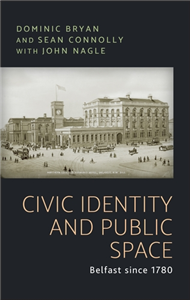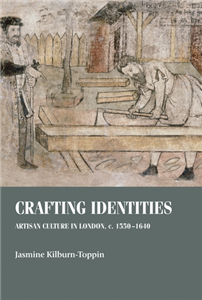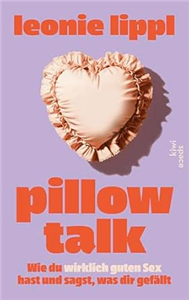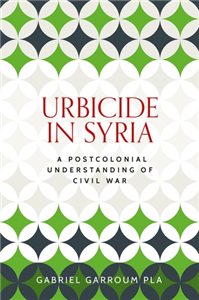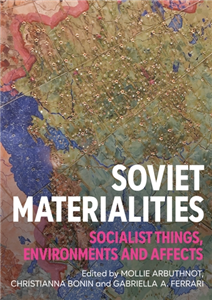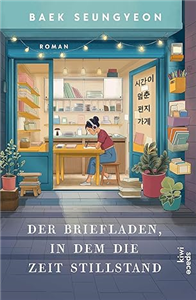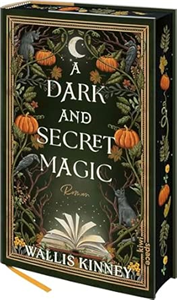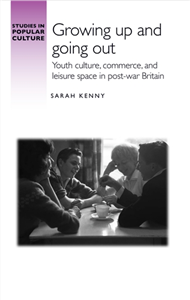Your Search Results
-
Spatterlight
We manage rights for science-fiction and fantasy legend Jack Vane (1916 - 2013) and selected titles by Tanith Lee, Michael Shea, Matthew Hughes, and others.
View Rights Portal
-
Promoted ContentHumanities & Social SciencesMarch 2022
Civic identity and public space
Belfast since 1780
by Dominic Bryan, Sean J. Connolly, John Nagle
Civic identity and public space, focussing on Belfast, and bringing together the work of a historian and two social scientists, offers a new perspective on the sometimes lethal conflicts over parades, flags and other issues that continue to disrupt political life in Northern Ireland. It examines the emergence during the nineteenth century of the concept of public space and the development of new strategies for its regulation, the establishment, the new conditions created by the emergence in 1920 of a Northern Ireland state, of a near monopoly of public space enjoyed by Protestants and unionists, and the break down of that monopoly in more recent decades. Today policy makers and politicians struggle to devise a strategy for the management of public space in a divided city, while endeavouring to promote a new sense of civic identity that will transcend long-standing sectarian and political divisions.
-
Promoted ContentHumanities & Social SciencesJuly 2022
Researching urban space and the built environment
by Jonathan Blaney, Simon Trafford, Jasmine Kilburn-Toppin, Elaine Tierney, Charlotte Wildman
-
 Trusted Partner
Literature & Literary StudiesMarch 2023
Trusted Partner
Literature & Literary StudiesMarch 2023Sleep and its spaces in Middle English literature
Emotions, ethics, dreams
by Megan Leitch
Middle English literature is intimately concerned with sleep and the spaces in which it takes place. In the medieval English imagination, sleep is an embodied and culturally determined act. It is both performed and interpreted by characters and contemporaries, subject to a particular habitus and understood through particular hermeneutic lenses. While illuminating the intersecting medical and moral discourses by which it is shaped, sleep also sheds light on subjects in favour of which it has hitherto been overlooked: what sleep can enable (dreams and dream poetry) or what it can stand in for or supersede (desire and sex). This book argues that sleep mediates thematic concerns and questions in ways that have ethical, affective and oneiric implications. At the same time, it offers important contributions to understanding different Middle English genres: romance, dream vision, drama and fabliau.
-
 Trusted Partner
Literature & Literary StudiesAugust 2022
Trusted Partner
Literature & Literary StudiesAugust 2022Edmund Spenser and the romance of space
by Tamsin Badcoe
Edmund Spenser and the romance of space advances the exploration of literary space into new areas, firstly by taking advantage of recent interdisciplinary interests in the spatial qualities of early modern thought and culture, and secondly by reading literature concerning the art of cosmography and navigation alongside imaginative literature with the purpose of identifying shared modes and preoccupations. The book looks to the work of cultural and historical geographers in order to gauge the roles that aesthetic subjectivity and the imagination play in the development of geographical knowledge: contexts ultimately employed by the study to achieve a better understanding of the place of Ireland in Spenser's writing. The study also engages with recent ecocritical approaches to literary environments, such as coastlines, wetlands, and islands, thus framing fresh readings of Spenser's handling of mixed genres.
-
 Trusted Partner
Humanities & Social SciencesDecember 2021
Trusted Partner
Humanities & Social SciencesDecember 2021Crafting identities
Artisan culture in London, c. 1550–1640
by Jasmine Kilburn-Toppin, Christopher Breward, James Ryan
Crafting identities explores artisanal identity and culture in early modern London. It demonstrates that the social, intellectual and political status of London's crafts and craftsmen were embedded in particular material and spatial contexts. Through examination of a wide range of manuscript, visual and material culture sources, the book investigates for the first time how London's artisans physically shaped the built environment of the city and how the experience of negotiating urban spaces impacted directly on their distinctive individual and collective identities. Applying an innovative and interdisciplinary methodology to the examination of artisanal cultures, the book engages with the fields of social and cultural history and the histories of art, design and architecture. It will appeal to scholars of early modern social, cultural and urban history, as well as those interested in design and architectural history.
-
 Trusted Partner
Literature & Literary StudiesJune 2021
Trusted Partner
Literature & Literary StudiesJune 2021Sleep and its spaces in Middle English literature
by Megan Leitch, Anke Bernau, David Matthews, James Paz
-
 Trusted Partner
Trusted Partner
Pillow Talk
Wie du wirklich guten Sex hast und sagst, was dir gefällt
by Lippl, Leonie
Dein Pleasure Guide für den Sex, den du dir wünschst Wie findest du heraus, was dir im Bett gefällt? Wie kannst du sexuelle Begegnungen mit dir selbst und anderen maximal genießen? Und wie sprichst du am besten darüber, wenn etwas nicht so läuft, wie du es dir wünschst? Leonie Lippl deckt Mythen rund um Beziehungen und Sex auf und gibt praktische Tipps, wie du deine eigene Sexualität entspannt und selbstbewusst entdeckst. Von der Sexualberaterin und Content Creatorin Leonie Lippl (@itsleonieida).
-
 Trusted Partner
The ArtsMarch 2013
Trusted Partner
The ArtsMarch 2013Space and being in contemporary French cinema
by James S. Williams
This book brings together for the first time five French directors who have established themselves as among the most exciting and significant working today: Bruno Dumont, Robert Guédiguian, Laurent Cantet, Abdellatif Kechiche, and Claire Denis. Whatever their chosen habitats or shifting terrains, each of these highly distinctive auteurs has developed unique strategies of representation and framing that reflect a profound investment in the geophysical world. The book proposes that we think about cinematographic space in its many different forms simultaneously (screenspace, landscape, narrative space, soundscape, spectatorial space). Through a series of close and original readings of selected films, it posits a new 'space of the cinematic subject'. Accessible and wide-ranging, this volume opens up new areas of critical enquiry in the expanding interdisciplinary field of space studies. It will be of immediate interest to students and researchers working not only in film studies and film philosophy, but also in French/Francophone studies, postcolonial studies, gender and cultural studies. Listen to James S. Williams speaking about his book http://bit.ly/13xCGZN. (Copy and paste the link into your browser) ;
-
 Trusted Partner
Humanities & Social SciencesJune 2019
Trusted Partner
Humanities & Social SciencesJune 2019Civic identity and public space
by Sean Connolly, Dominic Bryan, John Nagle
-
 Trusted Partner
Humanities & Social SciencesJuly 2025
Trusted Partner
Humanities & Social SciencesJuly 2025Urbicide in Syria
A postcolonial understanding of civil war
by Gabriel Garroum Pla
This book provides an exhaustive analysis of the relationship between violence, urban space, and political subjectivity in Syria. It does so through an exploration of how urbicide, the violent destruction and alteration of the urban fabric, becomes a tool for the regime's governmental and sovereign exercise of power, decisively redefining state-society dynamics and cementing political loyalty in Syria. Adopting a critical and postcolonial perspective, and through the cases of Damascus and Aleppo, the volume presents a unique perspective on the civil war by examining socio-material changes in everyday political spaces and processes, from mundane destruction to urban development and reconstruction efforts, and how these are experienced by local communities. Featuring rich data collection through interviews, archival research, and aesthetic sources, the book ultimately foregrounds Syrians' political agency and creativity despite ruination.
-
 Trusted Partner
Humanities & Social SciencesMarch 2026
Trusted Partner
Humanities & Social SciencesMarch 2026Soviet materialities
Socialist things, environments and affects
by Mollie Arbuthnot, Christianna Bonin, Gabriella Ferrari
Soviet materialities explores how material transforms our understanding of Soviet culture, from the textures of domestic space in 1960s apartment blocks to Gulag labour on the Moscow canal, and from avant-garde literary theory in the 1920s to conceptual art under perestroika. It starts from the ethos that the material world shapes people and society. Taking a material approach-or a range of material approaches-can therefore illuminate aspects of the cultural production and lived experiences of Soviet socialism that are not reflected in other kinds of historical records. This edited volume brings cutting-edge research by emerging scholars together with the established voices who have broken the ground in this sub-field over the last twenty years and promises to make a major intervention in the study of Soviet history and culture.
-
 Trusted Partner
Trusted Partner
Der Briefladen, in dem die Zeit stillstand
by Seungyeon, Baek / Übersetzt von Bring, Sebastian
Ein Roman für alle, die schönes Briefpapier lieben und die nach Entschleunigung suchen. In dem Briefladen, in dem die Zeit stillstand, umgeben von schönsten Dingen, lernt Hyoyeong nach einem schweren Schicksalsschlag, das Leben wieder zu spüren. Sie hört die Geschichten von Menschen, die ihre Hoffnungen, Ängste und Träume zu Papier bringen, und lernt dabei nicht nur neue Freund*innen kennen, sondern auch, wie man zu sich selbst zurückfindet.
-
 Trusted Partner
Trusted Partner
-
 Trusted Partner
Trusted Partner
A Dark and Secret Magic
by Kinney, Wallis / Übersetzt von Humburg, Jasmin
Verbotene Magie, düstere Geheimnisse & eine prickelnde Liebesgeschichte Ein Must-Read für alle, die den Herbst und Pumpkin Spice Latte lieben! Kate hat sich in ihrem abgelegenen Hexenhaus ein ruhiges Leben eingerichtet – doch als ihre Schwester sie bittet, das jährliche Halloween-Treffen ihres Zirkels auszurichten, beginnt ihr wohlgeordnetes Dasein zu wanken. Dann taucht Matthew auf, ein Mann aus ihrer Vergangenheit, der ein dunkles Geheimnis verbirgt: Er ist ein Anhänger der verbotenen Magie. Als Kate ein rätselhaftes Buch mit einer verstörenden Nachricht ihrer verstorbenen Mutter findet, steht sie vor der wichtigsten Entscheidung ihres Lebens: Wem kann sie wirklich vertrauen? Enemies to Lovers – Leidenschaft trifft auf Gefahr He Falls First – Er verfällt ihr, bevor sie es zulässt Ein magischer, atmosphärischer Romantasy-Roman voller Geheimnisse, dunkler Magie und unwiderstehlicher Spannung. Wallis Kinney feiert mit diesem Buch das Wunder von Halloween – für alle, die sich nach einer verzaubernden Herbstlektüre sehnen! Inklusive der Rezepte der Gerichte aus dem Roman.
-
 Trusted Partner
Trusted Partner
Kein Bock Club
Warum wir auch mal keine Lust auf Sex haben
by Popov, Maria
Sexuelle Lust gilt als Maßstab für Intimität, Beziehungsqualität und persönliche Erfüllung. Doch was passiert, wenn sie ausbleibt? Wenn wir keinen Bock auf Sex haben, obwohl »eigentlich alles stimmt«? Wenn »Ich bin müde« nur eine Umschreibung für etwas ist, das wir selbst kaum benennen können? Schon in ihrer Jugend hatte Maria Popov nie richtig Bock auf Sex mit Männern und stößt auf ein Wort, das ihr Gefühl zum ersten Mal beschreibt: Asexualität. Aber was heißt das eigentlich genau? In »Kein Bock Club« erzählt die Moderatorin von ihrer ersten Periode, missglückten Flirtversuchen, aufregenden Ohrmassagen – und von der Erleichterung, wenn man merkt: Ich bin mit all diesen Gefühlen nicht allein. Dieses Buch ist für dich, wenn du dich fragst: Warum wird sexuelle Unlust oft als Problem gesehen? Wie beeinflussen gesellschaftliche Erwartungen unser Sexleben? Wieso fühlen sich viele Menschen gezwungen, bestimmten Normen zu entsprechen? Müssen wir wirklich alle feministische Sexgöttinnen sein? Mit Scharfsinn und Humor deckt Maria Popov Mythen rund um Libido, Beziehungen und Sexualität auf. Sie erklärt, wie Lust funktioniert, warum sexuelle Vielfalt mehr ist als nur eine Identitätsfrage ist und was passiert, wenn wir aufhören, Lustlosigkeit als Defizit zu betrachten. »Kein Bock Club« ist eine Einladung, Begehren neu zu denken – zärtlicher, ehrlicher, mutiger.
-
 Trusted Partner
Humanities & Social SciencesFebruary 2025
Trusted Partner
Humanities & Social SciencesFebruary 2025Growing up and going out
Youth culture, commerce, and leisure space in post-war Britain
by Sarah Kenny
In the decades following the Second World War, youthful sociability was remade as young people across Britain flocked to newly-opened coffee bars, beat clubs, and discos. These spaces, increasingly unknown and unfamiliar to the adults who passed by them, played a remarkable role in reshaping town and city centres after dark as sites of leisure and recreation. Telling the history of youth in post-war Britain from the ground up, through the towns and cities that young people moved through, this book traces how the new spaces of post-war youth leisure transformed both young people's relationship with their local environment and adults' perceptions of the possibilities and dangers of modern leisure. Growing up and going out offers a timely study of youth, commerce, and leisure that explores the reimagination, remaking, and regulation of the post-war city after dark.
-
 Trusted Partner
Trusted Partner
-
 Trusted Partner
TelevisionNovember 2007
Trusted Partner
TelevisionNovember 2007Time and Relative Dissertations in Space
Critical Perspectives on Doctor Who
by Edited by David Butler
Time and relative dissertations in space takes the reader on a rich and varied study of one of the greatest television programmes of all time: Doctor Who. This book is the first study of Doctor Who to explore the Doctor's adventures in all their manifestations: on television, audio, in print and beyond. Although focusing on the original series (1963-89), the collection recognises that Doctor Who is a cultural phenomenon that has been 'told' in many ways through a myriad of texts. Combining essays from academics as well as practitioners who have contributed to the ongoing narrative of Doctor Who, the collection encourages debate with contrasting opinions on the strengths (and weaknesses) of the programme, offering a multi-perspective view of Doctor Who and the reasons for its endurance.
-
 Trusted Partner
Humanities & Social SciencesJuly 2022
Trusted Partner
Humanities & Social SciencesJuly 2022Global biographies
by Laura Almagor, Haakon Ikonomou, Gunvor Simonsen
-
 Trusted Partner
Trusted Partner
Das Beste sind die Augen
by Kim, Monika / Übersetzung Humburg, Jasmin
Feministischer Horror trifft auf gesellschaftskritischen Nervenkitzel Monika Kims Sunday Times-Bestseller ist ein fesselnder feministischer Horrorroman über Wut, Obsession und die Grenzen der Moral. Nach der Trennung ihrer Eltern gerät Jiwons Leben ins Chaos – und der neue, selbstgefällige weiße Freund ihrer Mutter macht alles nur schlimmer, indem er sie und ihre Schwester fetischisiert und ihre Kultur verhöhnt. Jiwons Gedanken werden immer radikaler. Wie weit wird sie gehen, um ihre Familie zu retten? Good for her? – Eine schockierende weibliche Rachegeschichte Female Rage & Horror – Die blutige Geburt einer Serienmörderin Ein Debüt, das Grenzen sprengt: Monika Kim verbindet gesellschaftliche Themen mit Gänsehaut-Horror!



